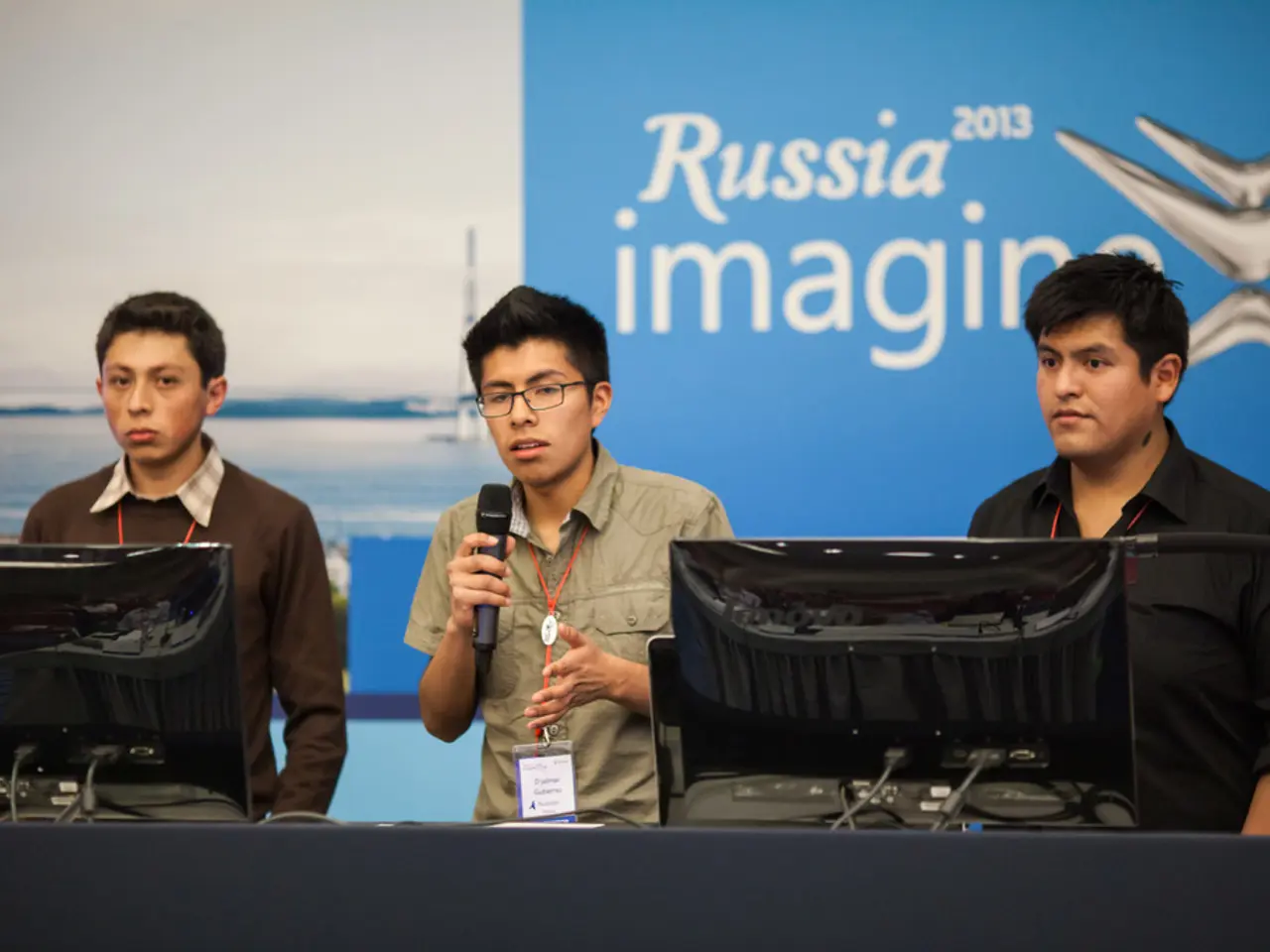Putin's ex-foreign minister's assertion: Peace talks unlikely as Putin aproaches Trump summit
In an interview, the former Ukrainian Foreign Minister Dmytro Kuleba, who served from 2020 to 2024, shared his insights on the ongoing Russia-Ukraine conflict. Kuleba, who has since stepped away from public office, remains firm in his stance that peace is an elusive prospect while Vladimir Putin remains in power.
Kuleba believes Putin is driven by a historical and chauvinistic ambition to subjugate Ukraine, comparing Putin's fixation on empire-building and legacy to that of Russia's past imperial leaders such as Ivan the Terrible and Catherine the Great. According to Kuleba, Putin "cannot lose this war" because it is tied deeply to his personal legacy and ambition, and that Putin is unwilling to compromise or seek genuine peace.
Kuleba argues that Putin gains more from prolonging the conflict than from a ceasefire, using negotiations strategically to divide and manipulate international players. He criticises a summit between Putin and Donald Trump as a symbolic victory for Putin, who used it to push Trump to pressure Ukraine and Europe into accepting conditions favourable to Russia, despite them being unacceptable to Ukraine.
On negotiations, Kuleba remains cautiously engaged but stresses that any progress is very tentative and that meaningful agreements face significant obstacles given Putin’s intransigence and disinformation. While he sees value in continuing diplomatic talks, he warns that nothing is agreed upon until all terms are accepted, and that genuine security guarantees against future Russian aggression remain uncertain.
Kuleba compares the ongoing Russia-Ukraine war to an incoming train, suggesting that any proposed ceasefire could be a trap. He warns against the idea of a magic weapon that will change the game in the war. Ukraine, he emphasises, has its own red lines in negotiations, including not recognizing Russian occupation of Ukrainian territory, not limiting the size and sophistication of Ukraine's armed forces, and not abandoning Kyiv's NATO ambitions.
Recent polling suggests that 76% of Ukrainians reject Russia's proposed peace plan, which includes Ukraine abandoning NATO accession, limiting its army, and surrendering several southern and eastern regions. Kuleba's successor, Andrii Sybiha, has continued his work in pressing Western partners for more aid and faster delivery.
Despite no longer being involved in creating Ukraine's policy, Kuleba maintains deep convictions about Ukraine's struggle against Russia's invasion. He believes that millions of veterans will form a potent voting bloc after the war, demanding a higher role in politics due to their different sense of justice. Kuleba suggests that Ukraine will be more politically consolidated after the war, with independence and Western orientation not being questioned, but divided along the lines of populism and understanding of the sense of justice in the post-war era.
Kuleba urges caution over any apparent breakthroughs in peace talks, particularly if they offer strategic opportunities for the Kremlin. Putin has suggested that any peace settlement must recognize the "new territorial realities" of Russian occupation of swaths of southern and eastern Ukraine. Kuleba believes that Putin has shown no sign of abandoning his maximalist war goals, and a pause in the fighting may only prove an opportunity for Moscow to prepare its next offensive.
In conclusion, Kuleba views Putin as an uncompromising aggressor driven by imperial ambitions and personal legacy, who is unlikely to accept peace on terms favourable to Ukraine. Kuleba continues to advocate for firm Ukrainian resistance and international support while remaining cautiously open to dialogue but deeply skeptical of Russian intentions.
Read also:
- Weekly happenings in the German Federal Parliament (Bundestag)
- Southwest region's most popular posts, accompanied by an inquiry:
- Discussion between Putin and Trump in Alaska could potentially overshadow Ukraine's concerns
- Massive 8.8 earthquake hits off the coast of Russia's Kamchatka Peninsula, prompting Japan to issue a tsunami alert.







